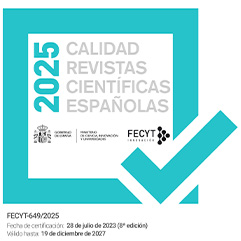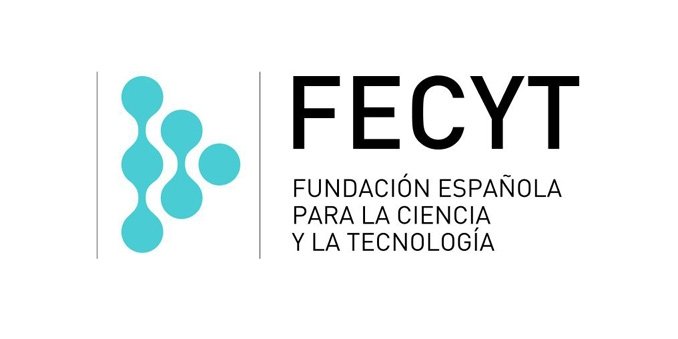Ted Talks as a teaching resource in the subject of “Economics of social expenditure” of the degree in Economics
DOI:
https://doi.org/10.17561/ree.n1.2024.8206Keywords:
TED Talks, Guest Speaker, Teaching innovation, economics of social expenditureAbstract
Objective: The pandemic highlighted the need to reinforce other teaching methods such as virtual teaching, gamification, and asynchronous formats. Our study analyzes the experience of implementing the asynchronous guest speaker approach using TED Talks in the course “Economics of Social Expenditure” in the third year of the Economics Degree.
Methods: At the end of each TED Talk, students are given a series of activities to analyze the performance and usefulness of the activity in terms of their acceptance and understanding of the key concepts that have been assessed in the continuous evaluation. Besides, students are required to respond to an anonymous questionnaire regarding their satisfaction with the activity.
Results: Both the questionnaires and the grades show the following results: 1. High satisfaction with the proposed activities. 2. Increased student participation and engagement in the course’s development. 3. Improved acceptance and assimilation of key concepts resulting in higher final grades for the course. 4. Enhancement of soft skills such as teamwork and critical thinking.
Conclusions: Our experience proves the need to continue in these methodologies, which could be extrapolated to other subjects. Thus, we can consider students’ feedback to improve teaching, but it will also allow us to build a small database to statistically validate this teaching experience.
Downloads
References
Becker, W. E. (2000). ‘Teaching Economics in the 21st Century’, Journal of Economic Perspectives, 14(1), pp. 109–119. doi: 10.1257/jep.14.1.109.
Bustamante, J. C., Segura-Berges, M., Lizalde-Gil, M. and Peñarrubia-Lozano, C. (2022). ‘Qualitative Analyses of e-Learning Implementation and Hybrid Teaching during the COVID-19 Pandemic at Spanish Universities’, Sustainability, 14(19), p. 12003. doi: 10.3390/su141912003.
Cantarero Prieto, D., Lanza-León, P., Moreno, P., Blázquez-Fernández, C., Lera, J., González-Diego, FJ. and González-Rodriguez, I. (2023). ‘Change in eating habits during the Spanish COVID-19 pandemic lockdown: evidence for a sample of university community’, PeerJ, 11, p. e14244. doi: 10.7717/peerj.14244.
Carducci, F. (2017). ‘TED talks in the sciences: a CLIL experience in higher education’, in, pp. 3164–3169. doi: 10.21125/edulearn.2017.0167.
Choirunnisa, M. R. and Sari, F. M. (2021). ‘TED Talks Use in Speaking Class for Undergraduate Students’, Jambura Journal of English Teaching and Literature, 2(1), pp. 35–40. doi: 10.37905/jetl.v2i1.7319.
DaVia Rubenstein, L. (2012). ‘Using TED Talks to Inspire Thoughtful Practice’, The Teacher Educator, 47(4), pp. 261–267. doi: 10.1080/08878730.2012.713303.
Diez-Minguela, A. and Añon-Higón, D. (2015). ‘TED-Ed: una herramienta online para fomentar el auto-aprendizaje’, RIDU - Revista d’innovació Docent Universitària2, 7. doi: 10.1344/RIDU2015.7.2.
Echeverría, M.-P. P., Pozo, J.-I. and Cabellos, B. (2022). ‘Analysis of Teaching Practices During the COVID-19 Pandemic: Teachers’ Goals and Activities in Virtual Classrooms’, Frontiers in Psychology, 13. doi: 10.3389/fpsyg.2022.870903.
García-Campanario, I., Vanlinthout, L. E., Toro, R., Mangas, A. and Lagares-Franco, C. (2022). ‘Impact of COVID-19 on Physical Activity and Lifestyles in Post-Confinement Sports Science Undergraduates’, International Journal of Environmental Research and Public Health, 19(15), p. 9115. doi: 10.3390/ijerph19159115.
Garvey, A. M., Jimeno-Garcia, I., Otal-Franco, S. H. and Mir-Fernandez, C. (2021). ‘The Psychological Impact of Strict and Prolonged Confinement on Business Students during the COVID-19 Pandemic at a Spanish University’, International Journal of Environmental Research and Public Health, 18(4), p. 1710. doi: 10.3390/ijerph18041710.
Geerling, W. (2012). ‘Bringing the “Dismal Science” to Life: Teaching Economics Through Multimedia’, International Review of Economics Education, 11(2), pp. 81–90. doi: 10.1016/S1477-3880(15)30010-4.
Guardia, J. J., del Olmo, J. L., Roa, I. and Berlanga, V. (2019). ‘Innovation in the teaching-learning process: the case of Kahoot!’, On the Horizon, 27(1), pp. 35–45. doi: 10.1108/OTH-11-2018-0035.
Imaz-Aramburu, I., Fraile-Bermúdez, A. B., San Martin-Gamboa, B., Cepeda-Miguel, S., Doncel-García, B., Fernández-Atutxa, A., Irazusta, A. and Zarrazquin, I. (2021). ‘Influence of the COVID-19 Pandemic on the Lifestyles of Health Sciences University Students in Spain: A Longitudinal Study’, Nutrients, 13(6), p. 1958. doi: 10.3390/nu13061958.
Jablon-Roberts, S. and McCracken, A. (2023). ‘Virtual Guest Speakers in Textile and Apparel Courses: Student Experiences and Expectations’, Clothing and Textiles Research Journal, 41(1), pp. 43–56. doi: 10.1177/0887302X221075765.
Leco-Berrocal, I., Martin-Morales, J. F., Tresguerres, I. F. and Garcillán-Izquierdo, R. (2021). ‘Knowledge about COVID-19 and pandemic impact on Madrid dental students (Spain)’, Journal of Clinical and Experimental Dentistry, pp. e762–e768. doi: 10.4317/jced.58005.
Lera-Torres, J.-I., Cantarero-Prieto, D. and Pascual-Sáez, M. (2022). ‘Consolidación de la innovación docente en la etapa universitaria’, REIRE Revista d’Innovació i Recerca en Educació, 15(2), pp. 1–12. doi: 10.1344/reire.39732.
López-Carril, S., Añó, V. and González-Serrano, M. H. (2020). ‘Introducing TED Talks as a Pedagogical Resource in Sport Management Education through YouTube and LinkedIn’, Sustainability, 12(23), p. 10161. doi: 10.3390/su122310161.
López Carrillo, D., Calonge-Garcia, A., Rodriguez-Laguna, T., Ros-Magán, G. and Lebrón-Moreno, J. A. (2019). ‘Using Gamification in a Teaching Innovation Project at the University of Alcalá: A New Approach to Experimental Science Practices’, Electronic Journal of e-Learning, 17(2), pp. 93–106. Disponible en: https://eric.ed.gov/?id=EJ1220168.
Lopukhova, J., Makeeva, E. and Rudneva, T. (2020). ‘Using Flipped Classroom in Foreign Language Teaching: Implementation of Interactive Educational Technologies’, in, pp. 619–630. doi: 10.1007/978-3-030-40271-6_61.
Loya, M. A. and Klemm, T. (2016). ‘Teaching Note—Using TED Talks in the Social Work Classroom: Encouraging Student Engagement and Discourse’, Journal of Social Work Education, 52(4), pp. 518–523. doi: 10.1080/10437797.2016.1198291.
Lysanets, Y. V., Bieliaieva, O. M. and Morokhovets, H. Y. (2022). ‘The effectiveness of “TED Talks” video materials in teaching english at a medical university’, The Medical and Ecological Problems, 26(5–6), pp. 37–40. doi: 10.31718/mep.2022.26.5-6.07.
Marques, G., Drissi, N., de la Torre-Diez, I., Sainz de Abajo, B. and Ouhbi, S. (2021). ‘Impact of COVID-19 on the psychological health of university students in Spain and their attitudes toward Mobile mental health solutions’, International Journal of Medical Informatics, 147, p. 104369. doi: 10.1016/j.ijmedinf.2020.104369.
Moreno-Guerrero, A. J., Aznar-Diaz, I., Cáceres-Reche, P. and Alonso-García, S. (2020). ‘E-Learning in the Teaching of Mathematics: An Educational Experience in Adult High School’, Mathematics, 8(5), p. 840. doi: 10.3390/math8050840.
Nicolle, E., Britton, E. and Janakiram, P. (2014). ‘Using TED Talks to teach social determinants of health’, Canadian Family Physician, 60(9), pp. 777–778. Disponible en: https://www.cfp.ca/content/60/9/777.short.
Odriozola-González, P. et al. (2020). ‘Psychological effects of the COVID-19 outbreak and lockdown among students and workers of a Spanish university’, Psychiatry Research, 290, p. 113108. doi: 10.1016/j.psychres.2020.113108.
Ożadowicz, A. (2020). ‘Modified Blended Learning in Engineering Higher Education during the COVID-19 Lockdown—Building Automation Courses Case Study’, Education Sciences, 10(10), p. 292. doi: 10.3390/educsci10100292.
Padrón, I., Fraga, I., Vieitez, L., Montes, C. and Romero, E. (2021). ‘A Study on the Psychological Wound of COVID-19 in University Students’, Frontiers in Psychology, 12. doi: 10.3389/fpsyg.2021.589927.
Paños-Castro, J., Arruti, A. and Korres, O. (2022). ‘COVID and ICT in Primary Education: Challenges Faced by Teachers in the Basque Country’, Sustainability, 14(16), p. 10452. doi: 10.3390/su141610452.
Rodríguez-Larrad, A., Mañas, A., Labaye, I., González-Gross, M., Espin, A., Aznar, S., Serrano-Sanchez, JA., Vera-García, FJ., González-Lamuño, D., Ara, I., Carrasco-Paez, L., Castro-Piñero, J., Gomez-Cabrera, MC., Márquez, S., Tur, JA., Gusi, N., Benito, PJ., Moliner-Urdiales, D., Ruiz, JR. and Ortega, FB. (2021). ‘Impact of COVID-19 Confinement on Physical Activity and Sedentary Behaviour in Spanish University Students: Role of Gender’, International Journal of Environmental Research and Public Health, 18(2), p. 369. doi: 10.3390/ijerph18020369.
Roldán-Merino, J., Hurtado-Pardos, B., Molina-Raya, L., Bande, D., Casas, I. and Farrés-Tarafa, M. (2022). ‘Psychological impact of the COVID-19 pandemic on nursing students in the first wave: A cross-sectional survey’, Nursing Open, 9(4), pp. 2003–2012. doi: 10.1002/nop2.1207.
Ruiz-Zaldibar, C., García-Garcés, L., Vicario-Merino, Á., Mayoral-Gonzalo, N., Lluesma-Vidal, M., Ruiz-Lopez, M. and Pérez-Manchón, D. (2022). ‘The Impact of COVID-19 on the Lifestyles of University Students: A Spanish Online Survey’, Healthcare, 10(2), p. 309. doi: 10.3390/healthcare10020309.
Salem, A. A. M. S. (2019). ‘A Sage on a Stage, to Express and Impress: TED Talks for Improving Oral Presentation Skills, Vocabulary Retention and Its Impact on Reducing Speaking Anxiety in ESP Settings’, English Language Teaching, 12(6), p. 146. doi: 10.5539/elt.v12n6p146.
Sanz-Arcega, E. (2020). ‘La figura del ponente invitado y la docencia en Economía Pública: una propuesta a partir de una experiencia docente con TED’, e-Publica, 27, pp. 1–13.
Schumann, H. O. (2019). ‘The use of student-copresented virtual guest speakers in entrepreneurial education’, Journal of Education for Business, 94(6), pp. 418–422. doi: 10.1080/08832323.2018.1538094.
Sohrabi, B. and Iraj, H. (2016). ‘Implementing flipped classroom using digital media: A comparison of two demographically different groups perceptions’, Computers in Human Behavior, 60, pp. 514–524. doi: 10.1016/j.chb.2016.02.056.
TED (2023). TED organization. Disponible en: https://www.ted.com/about/our-organization.
Universidad de Cantabria (2023). Página Web Oficial. Disponible: https://web.unican.es (Acceso: 13 noviembre 2023).
Valūnaitė Oleškevičienė, G., Mockiené, L., Lasauskiené, R., Gulbinskiené, D., Rackevičienė, S. and Suchanova, J. (2022). ‘TED Talks for Public Speaking Skills and Global Citizenship in ESP Classroom’, in, pp. 391–401. doi: 10.1007/978-3-031-22918-3_30.
Zou, P., Sun, W., Hallowell, S.G., Luo, Y., Lee, C. and Ge, L. (2019). ‘Use of guest speakers in nursing education: an integrative review of multidisciplinary literature’, Advances in Medical Education and Practice, Volume 10, pp. 175–189. doi: 10.2147/AMEP.S196456.
Published
Issue
Section
License
Copyright (c) 2024 David Cantarero Prieto, Carla Blázquez Fernández, Paloma Lanza León, Javier Lera

This work is licensed under a Creative Commons Attribution 4.0 International License.
- Authors maintain the copyright, but they guarantee the journal its right for publication, that is under Creative Commons Licence, permitting others share the work, whereas clearly indicating the author and the first publication of the journal.
- Authors could adopt non-exclusive licence agreements for delivering the published version, whereas clearly indicating the first publishing in Revista de Estudios Empresariales. Second Era.
- Authors are encouraged to spread their works through Internet before and during the sending process, in order to make interesting scientific discussions that could increase the cites of the published work (Open Citation Project).
Revista de Estudios Empresariales. Second Era, uses PKP Preservation Network (PN).




























